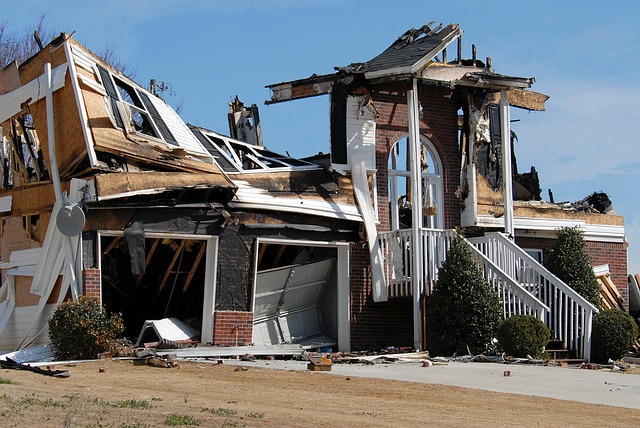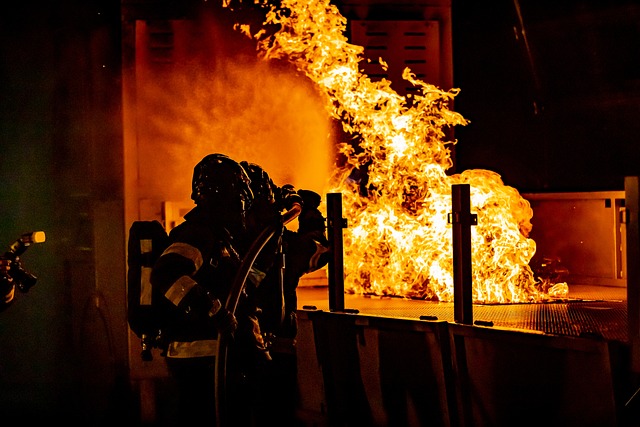Selling a house with fire damage in Houston requires understanding a complex property valuation process influenced by damage extent, location, market trends, and repair costs. Homeowners must provide detailed information, conduct meticulous inspections, and document damage. Transparent communication is crucial, as buyers rely on accurate post-fire valuations. Insurance implications should be considered to ensure fair compensation or coverage for restoration costs. Local market dynamics significantly impact valuation, with factors like demand, sales trends, and neighborhood health affecting outcomes. Strategic planning, including professional assessments, repairs, and transparency, can maximize sale potential in Houston's competitive market.
After a devastating fire, determining the value of your property in Houston can be challenging. This comprehensive guide explores post-fire property valuation, offering insights for homeowners navigating this difficult process. We delve into assessing fire damage, understanding insurance roles, market conditions’ influence, and effective strategies to sell a house with fire damage in Houston. By understanding these key factors, you’ll be better equipped to make informed decisions during the rebuilding and sale of your home.
- Understanding Post-Fire Property Valuation in Houston
- Assessing Fire Damage: What to Look For in a House Inspection
- The Role of Insurance in Post-Fire Property Valuation
- Local Market Conditions and Their Impact on Fire-Damaged Properties
- Strategies for Selling Your Fire-Damaged Home in Houston
Understanding Post-Fire Property Valuation in Houston

After a fire, property valuation in Houston becomes a complex process that requires expertise and specialized knowledge. When a home suffers fire damage, it’s natural for homeowners to wonder how this will impact their property’s value. In Houston, where the real estate market is dynamic and competitive, understanding post-fire valuations is crucial for anyone looking to sell a house with fire damage.
Valuers in Houston consider various factors when assessing a property after a fire. The extent of the damage plays a significant role; minor smoke and scent traces might not significantly affect the value, but extensive structural damage will. Additionally, the location of the property, local market trends, and the cost of repairs all influence the final valuation. Homeowners should be prepared to provide detailed information about the incident and any restoration plans to ensure an accurate assessment when selling a house with fire damage in Houston.
Assessing Fire Damage: What to Look For in a House Inspection

When assessing fire damage in a property, a thorough inspection is crucial for accurate post-fire valuation in Houston. Look for visible signs of charring or melting on walls, ceilings, and structural components like beams and floors. Check for smoke stains, which can indicate the extent of combustion and potential secondary damages. Inspect electrical and plumbing systems carefully; fire damage may have compromised their integrity. Pay attention to odours as well; persistent smoky aromas could impact a home’s market appeal.
During the inspection, document every damaged area with high-quality photographs. Note the age and type of materials used in construction, as these factors influence repair costs. Keep an eye out for potential safety hazards, such as unstable structures or hazardous materials like asbestos. Remember, selling a house with fire damage Houston requires transparent communication about the findings, ensuring prospective buyers make informed decisions based on accurate post-fire property valuation.
The Role of Insurance in Post-Fire Property Valuation

After a fire, homeowners in Houston often look to insurance as their first step in recovering from the disaster. Insurance plays a pivotal role in post-fire property valuation, providing crucial financial support for repairs or even total replacement of damaged assets. When a homeowner decides to sell a house with fire damage Houston, they can leverage their insurance policy to cover restoration costs or receive compensation for the reduced market value due to the incident.
The process involves assessing the extent of damage and determining the cost of repairs. Insurance adjusters will inspect the property and provide an estimate, which is used as a reference point during valuation. This ensures that the sale price reflects the actual condition of the house after the fire, offering a fair deal for both the seller and buyer. Understanding insurance implications is essential when navigating the complex process of selling a damaged property in Houston.
Local Market Conditions and Their Impact on Fire-Damaged Properties

Houston’s dynamic local market conditions significantly influence the valuation process for fire-damaged properties. Factors such as neighborhood demand, recent sales trends, and the severity of the damage play a crucial role in determining the post-fire value. For instance, areas known for their strong real estate market and high buyer activity can lead to more favorable outcomes when selling a house with fire damage Houston.
The impact extends beyond the immediate surroundings; factors like local economic health and demographic shifts also come into play. In thriving neighborhoods, buyers may be more willing to overlook fire damage, recognizing potential for renovation or reconstruction. Conversely, in areas experiencing a downturn, properties affected by fires might face longer selling times and potentially lower prices due to market skepticism and buyer hesitation surrounding similar listings.
Strategies for Selling Your Fire-Damaged Home in Houston

Selling your home after a fire can be a challenging process, especially in a competitive market like Houston. Here are some strategies to navigate this unique situation and get the best deal for your property. First, it’s crucial to assess the extent of the damage. Engage professional estimators or insurance adjusters to inspect the property accurately, providing detailed reports on repair costs. This step is essential for setting realistic expectations during the sale.
Next, prepare your home for showing by addressing safety concerns and beginning repairs where possible. Ensure the necessary safety measures are in place and highlight any improvements made. Consider offering transparency and flexibility in your listing. Open communication about the fire history can attract understanding buyers, especially if you provide documentation of the repair process. This approach may even position your property as a valuable opportunity for the right buyer looking to renovate or rebuild.
Post-fire property valuation in Houston involves a complex interplay of assessing damage, understanding insurance roles, local market conditions, and effective selling strategies. By thoroughly inspecting and accurately valuing fire-damaged properties, homeowners can make informed decisions when selling in the Houston market. Insurance providers play a crucial role in this process, offering compensation that can facilitate the repairs or replacement of homes. Local market dynamics, including demand and competition, significantly impact the value of fire-damaged properties, making it essential to consult experts familiar with the Houston real estate landscape. For those looking to sell a house with fire damage in Houston, understanding these factors is key to navigating the process successfully.






